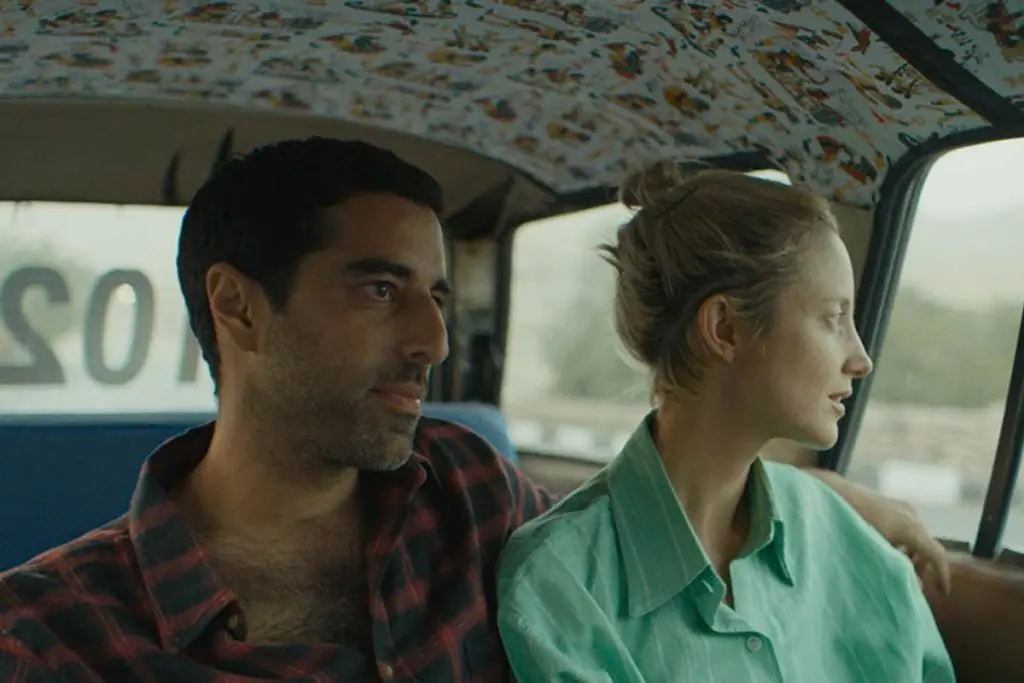Summary
Luxor is an extremely quiet and slow-moving character study, allowing audiences to get distracted, but also to breathe in fresh air in a new place.
There are certain places in the world that contain an element of past experiences, holy grounds that have been visited for thousands of years. When we enter into these spaces, we often find ourselves transfixed, heavy with the burden of all those that came before us. Do we hold onto these past lives and people? Do we find a way to concentrate on our own struggles? Or do we simply let these places wash over us? These are the questions and thoughts at the center of Zeina Durra’s Luxor, a drama centering on a middle-aged woman named Hana (Andrea Riseborough).
After a stint as a war zone doctor in the Middle East, Hana returns to Luxor, a small town on the Nile, a place she lived 20 years prior. She moseys around the city and its accompanying temples and burial sites until running into Sultan (Karim Saleh), an old coworker and boyfriend. The two spend the next few days together, reminiscing about their relationship, both working and romantic. They visit new archeological sites, tombs, and temples, flirting and laughing like they used to. Hana struggles to sleep and adjust to post-war life, while Sultan is on a different dig with the same team, both single and searching.
Durra’s film explores the sacred nature of these aforementioned places, with Hana seeking protection and recovery through more than modern medicine. Riseborough plays Hana with a meditative drive, rarely speaking above a whisper and hardly letting loose. In particular, Riseborough shines during the best scene in the film, with Hana and Sultan quite drunk in the hotel bar. Hana dances with a wild fervor for what feels like an eternity, with the camera focused on her flailing movements. It’s one of the only times in the film she is anything besides measured and thoughtful, and it remains the scene that sticks into your mind far beyond the end credits.
Hana and Sultan’s relationship becomes the focus of the back half of the film, as we all wait for some sort of climax. This argument comes and goes with speed, though, as Durra is less concerned with why they broke up, and more with why they haven’t made any leap of faith in the last two decades. The backdrop of a spiritual Egypt plays perfectly with the tune of the film, as huge deserts and monumental religious sites towering over the small couple. The dialogue almost always is rooted in reality and Durra’s script has a sharpness that deserves commendation.
Though Luxor won’t blow you away and certainly won’t stir up the heaviest of emotions, it will leave you in a state of melancholic thoughtfulness, regardless of the ending. The highs never are too high and the lows never are too low, with Durra’s drama existing somewhere in the middle, searching for answers, for love, and stability. It doesn’t answer most of those questions, but it has the guts to ask them.




